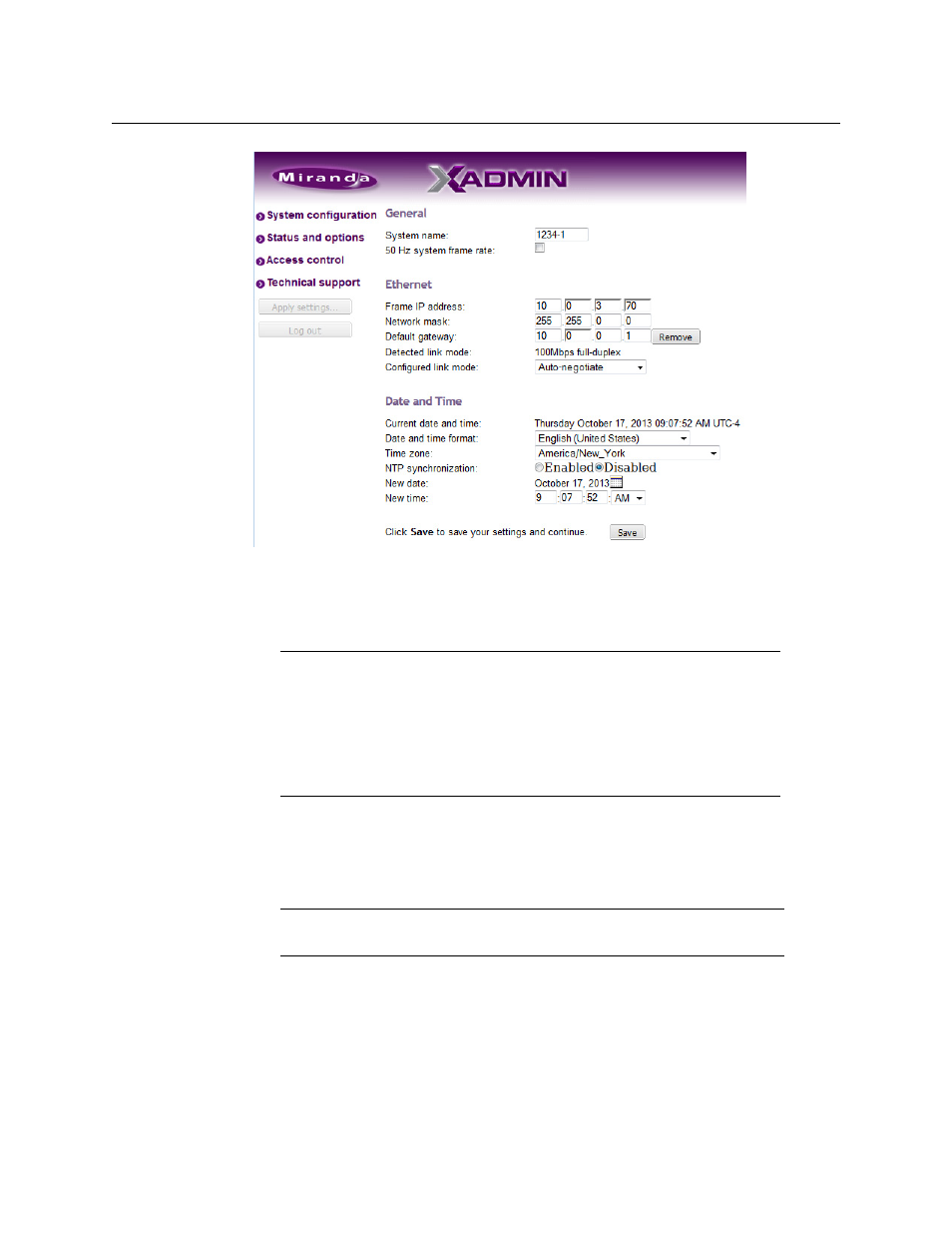Grass Valley Kaleido-X v.7.80 User Manual
Page 485

477
Kaleido-X
User’s Manual
3 Type a different name for your system if you wish.
If there are more than one multiviewer in the same network environment, it is
important to assign each a unique system name, so that you can tell them apart (for
example, when using a remote control panel such as the Kaleido-RCP2 or RCP-200).
In the absence of a reference signal, a Kaleido-X or Kaleido-X16 will process its video
inputs at a default frame rate of 59.94 Hz.
4 If your system requires a 50 Hz frame rate, to match the input signal data sampling rate,
in the absence of a reference signal, then select the corresponding check box.
5 Adjust the date and time settings, as required.
Clocks in your layouts will then display date and time in the applicable format.
6 Enter the appropriate IP information: frame or card IP addresses, network mask, and
default gateway.
7 In the case of a Kaleido-IP, to omit network configuration for an unused data port, clear
the corresponding Enabled check box.
Notes
• In the case of a Kaleido-IP multiviewer, the system name must comply
with RFC 1123, because it is also used as the device’s host name. Up to 8
characters are allowed, limited to A-Z, a-z, 0-9, and the hyphen. The system
name cannot start or end with an hyphen.
• For the other multiviewer models, only lower-ASCII characters are allowed
in the system name. Braces and tilde are not allowed.
Note:
The 50 Hz system frame rate option applies to the
Kaleido-X and
Kaleido-X16
multiviewers only.
